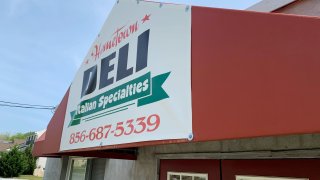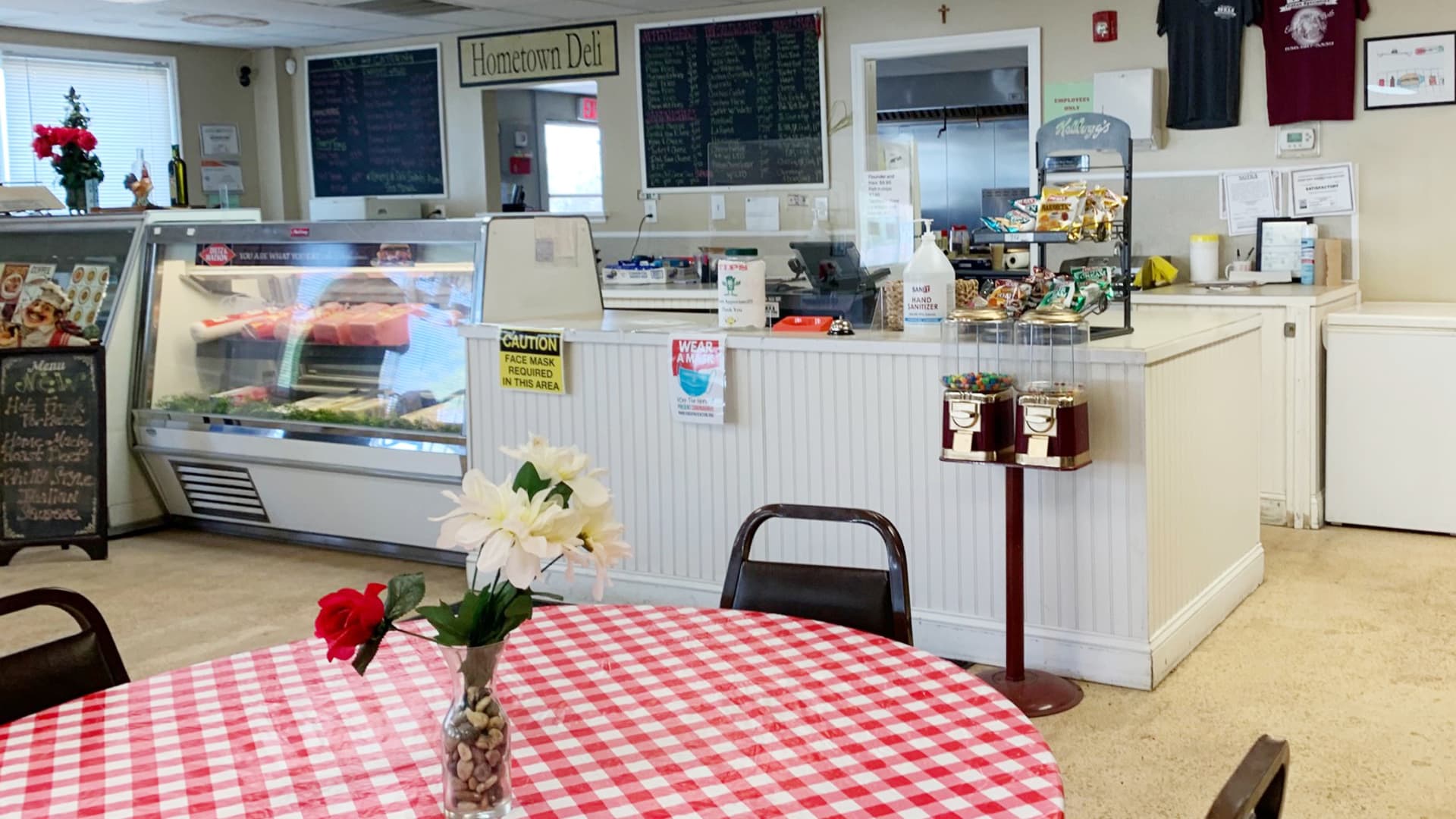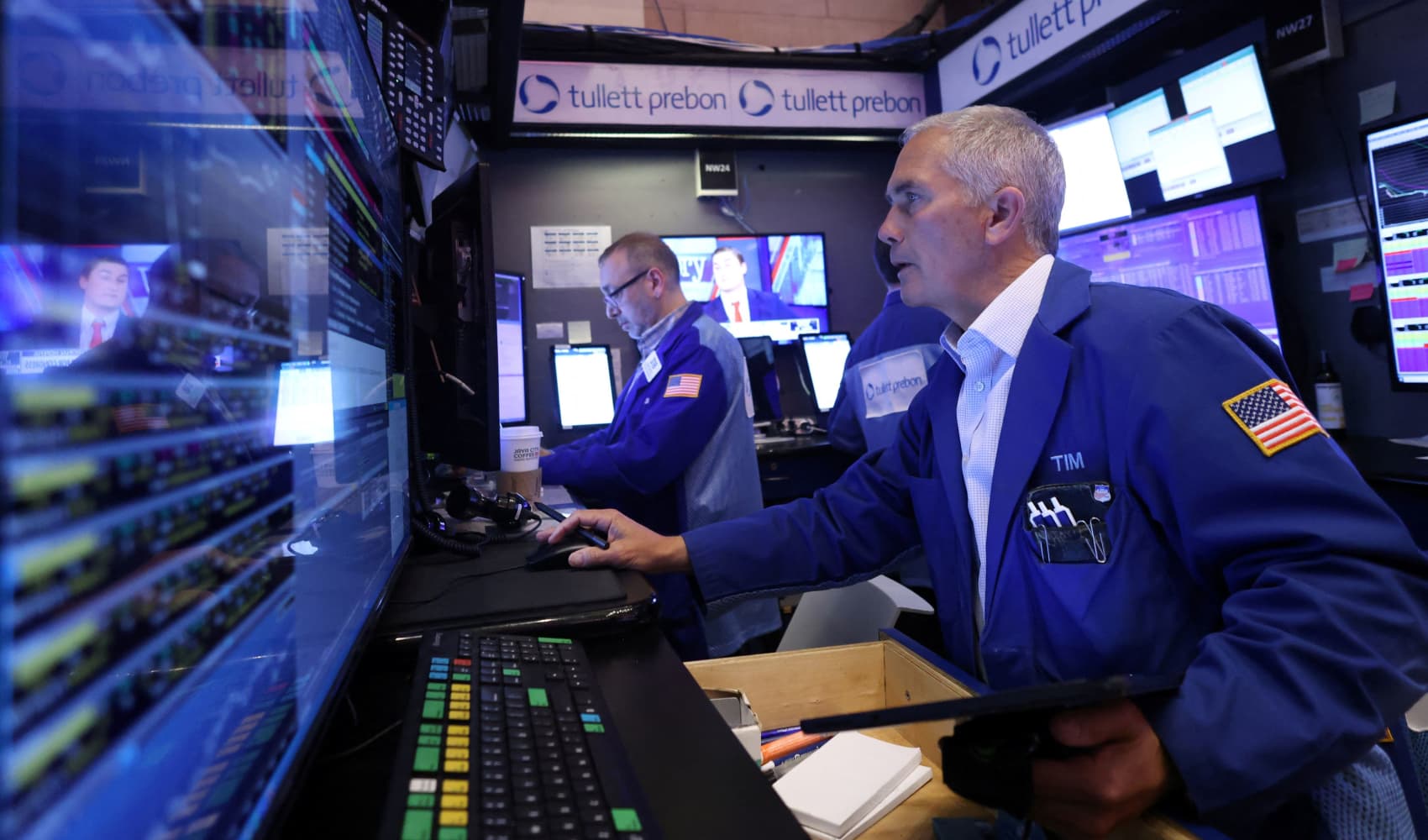
- Shell company E-Waste disavowed its own sky-high stock market valuation of $106 million, three days after an identical move by the mysterious corporation that owns just a single New Jersey deli.
- The deli company, Hometown International, has multiple connections to E-Waste. Each company has a market capitalization of about $100 million, which does not reflect either company's meager business operations.
- "The management of E-Waste Corp. ... disavows the price of its publicly quoted stock on the OTC Markets under the trading symbol 'EWST,'" the company said in an 8-K filing with the SEC.
The shell company E-Waste Corp. on Monday disavowed its own sky-high stock market valuation of $106 million, three days after an identical move by the mysterious corporation that owns just a single small New Jersey deli.
The deli company, Hometown International, has multiple connections to E-Waste, which has no actual business operations.
Both companies are thinly traded, at best, on the over-the-counter market.
We're making it easier for you to find stories that matter with our new newsletter — The 4Front. Sign up here and get news that is important for you to your inbox.
The back-to-back disavowals of their respective market capitalizations in Securities and Exchange Commission filings came after more than two weeks of articles by CNBC detailing legal and regulatory issues surrounding people and entities connected to Hometown International and E-Waste.
They also come as a Hong Kong-based firm, Maso Capital, continues trying to position both companies as vehicles for acquisition by privately held companies to become publicly traded on U.S. stock markets.
In its filing Monday with the SEC, the management of E-Waste said it "disavows the price of its publicly quoted stock on the OTC Markets under the trading symbol 'EWST.'"
Money Report
"Management is aware of no basis to support the Company's stock price, based upon its revenue or assets," the filing said in language that mirrored that of Hometown International's filing last Friday.
Last week, both Hometown International and E-Waste on the same day killed consulting agreements with a North Carolina firm controlled by the father of Hometown's chairman.
The moves, which cited "recent negative press," were praised by Maso Capital's founder, Manoj Jain, who said, "We look forward to both public companies taking forward their stated acquisition plans."
E-Waste last month raised $2.5 million from several institutional investors in a private placement offering, according to Monday's filing.
"Management disclosed that the proceeds from this private placement would be used for working capital and general corporate purposes, and to seek, investigate and, if such investigation warrants, engage in a business combination with a private entity whose business represents an opportunity for the Company's shareholders," the filing said.
The filing was signed by E-Waste President John Rollo, whose company in November declared a net loss of almost $58,000 for the prior nine months.
A Grammy Award-winning recording engineer, the 66-year-old Rollo last year was working as a patient transporter in a New Jersey hospital, according to another recent E-Waste financial.
E-Waste's stock price closed at $8.50 per share on Monday, with no trades recorded on the Pink market, according to OTC Markets Group.
With 12.5 million shares outstanding, E-Waste has a market capitalization of $106.25 million.
Hometown International stock, which also trades on the Pink market, closed at $13.40 per share, with just 2,866 out of the nearly 7.8 million common shares outstanding changing hands in trading.
That stock price gives the company a market cap of $97.85 million. That is many times greater than the just $35,000 or so in sales of its Hometown Deli in Paulsboro, New Jersey, in the past two years combined.
On April 21, OTC Markets Group demoted Hometown International to its Pink market from the more prestigious OTCQB platform because of "irregularities" in its public disclosures. The stock also had a "buyer beware" label slapped on it by OTC Markets, which told CNBC at the time that it was also examining the financial filings of E-Waste.
It remains unclear why anyone — either close to both companies or not — would have paid much at all for either stock in the past year, much less bid them up in value to their current valuations, given their lack of any significant business.
Both companies in their public disclosures have bluntly stated that there is no guarantee they will be able to survive in their current state.
E-Waste ostensibly was created to develop an e-waste recycling business in 2012, but it discontinued those efforts and has not declared any revenue for years.
A key figure connected to both companies is Peter Coker Sr., the father of Hometown International's chairman, Peter Coker Jr. The elder Coker is an investor in Hometown International.
Last year, after a Macao, China-based entity called Global Equity Limited bought 6 million restricted shares in E-Waste, a controlling stake, E-Waste's registration and phone number changed to Coker Sr.'s office in Carrboro, North Carolina, and began paying $250 per month for a one-year lease there.
Global Equity is also the biggest shareholder in Hometown International.
E-Waste also last year began paying Coker Sr.'s Tryon Capital $2,500 per month under a consulting agreement.
And Coker Sr. personally lent E-Waste $255,000 at an annual interest rate of 8%, according to financial filings. Tryon Capital also was collecting another $15,000 per month from a consulting agreement with Hometown International.
Those consulting deals were terminated last week after scrutiny of the arrangements by CNBC.
In late November, E-Waste issued a promissory note to Hometown International for $150,000 at an interest rate of at least 6% annually, according to an SEC filing. That note indicates Hometown International lent the shell company that amount.
The promissory note was acknowledged by Hometown International CEO Paul Morina, who is the principal at Paulsboro High School, whose renowned wrestling team he also coaches.

Coker Sr. has a tangled legal history, which includes allegations of hiding money from creditors and civil allegations of fraud, all of which he denied.
Coker Sr.'s business partners include Peter Reichard.
A decade ago, Reichard was convicted of using Tryon Capital in a scheme that employed bogus consulting deals to hide illegal campaign donations to Bev Perdue, a Democrat who was elected governor of North Carolina in 2008.
Coker Sr. was not implicated or charged in that case.






